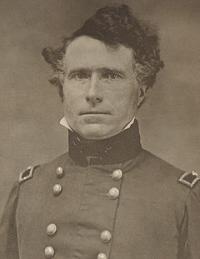Home | Office Holder | Franklin Pierce
|
|
|
Franklin Pierce (November 23, 1804 - October 8, 1869) was the 14th President of the United States (1853-1857) and is the only President from New Hampshire. Pierce was a Democrat and a "doughface" (a Northerner with Southern sympathies) who served in the U.S. House of Representatives and Senate. Pierce took part in the Mexican-American War and became a brigadier general. His private law practice in his home state, New Hampshire, was so successful that he was offered several important positions, which he turned down. Later, he was nominated as the party's candidate for president on the 49th ballot at the 1852 Democratic National Convention. In the presidential election, Pierce and his running mate William R. King won by a landslide in the Electoral College. They defeated the Whig Party ticket of Winfield Scott and William A. Graham by a 50% to 44% margin in the popular vote and 254 to 42 in the electoral vote. His amiable personality and handsome appearance caused him to make many friends, but he suffered tragedy in his personal life. As president, he made many divisive decisions which were widely criticized and earned him a reputation as one of the worst presidents in U.S. history. Pierce's popularity in the North declined sharply after he came out in favor of the Kansas � Nebraska Act, repealing the Missouri Compromise and renewing the debate over expanding slavery in the West. Pierce's credibility was further damaged when several of his diplomats issued the Ostend Manifesto. Historian David Potter concludes that the Ostend Manifesto and the Kansas-Nebraska Act were "the two great calamities of the Franklin Pierce administration.... Both brought down an avalanche of public criticism." More importantly, says Potter, they permanently discredited Manifest Destiny and "popular sovereignty" as political doctrines. Abandoned by his party, Pierce was not renominated to run in the 1856 presidential election and was replaced by James Buchanan as the Democratic candidate. After losing the Democratic nomination, Pierce continued his lifelong struggle with alcoholism as his marriage to Jane Means Appleton Pierce fell apart. His reputation was destroyed during the American Civil War when he declared support for the Confederacy, and personal correspondence between Pierce and Confederate President Jefferson Davis was leaked to the press. He died in 1869 from cirrhosis. Philip B. Kunhardt and Peter W. Kunhardt reflected the views of many historians when they wrote in The American President that Pierce was "a good man who didn't understand his own shortcomings. He was genuinely religious, loved his wife and reshaped himself so that he could adapt to her ways and show her true affection. He was one of the most popular men in New Hampshire, polite and thoughtful, easy and good at the political game, charming and fine and handsome. However, he has been criticized as timid and unable to cope with a changing America." |




 RSS
RSS